
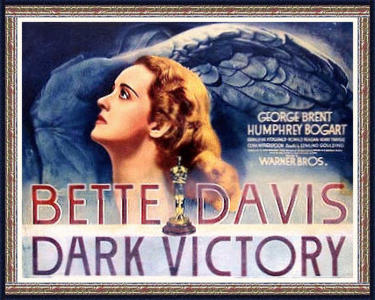
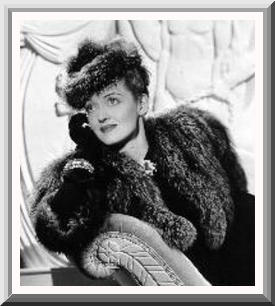
It is the story of fast-moving, hedonistic, Long Island socialite and heiress, Judith Traherne. After a period of denial of persistent vision difficulties, headaches, and other physical problems, she discovers that she has a brain tumor. Her doctor Frederick Steele (George Brent) performs a surgery and she is his "grateful patient," falling in love with him. But Judy is unaware that the operation was only a temporary solution to the problem, and it is confirmed by specialists that the cancer will return and she will have less than one year to live. Feeling completely well after her surgery, Judy accepts the doctor's proposal of marriage and goes forward with their wedding plans. In a memorable scene, she is startled when she looks in her case history file and accidently reads: "A recurrence is certain. Definitely: Prognosis negative." She belligerently falls into a drunken despair, boozing it up with male friend, effete, alcoholic playboy Alec (Ronald Reagan). In the time left, she rejects the doctor's care and affection as self-pity, and goes on a self-destructive binge. She contemplates suicide, and tries fast-living again for a short time. But she comes to terms with her fate, and decides to seek love, peace, and happiness and make the most out of life in her final few months. She remembers Dr. Steele's advice that when it (death) comes, "it must be met beautifully and finely." She returns to Dr. Steele and asks for his forgiveness. He accepts her completely and asks her to marry him. She accepts his offer. They move together to Vermont. It is here that Davis' acting range is put to the test when we see the complete transformation of Judy from the headstrong and caustic socialite, to the brave selfless woman who will face her own impending death with dignity and grace. This is the type of character we rarely see Davis play, and she is flawless in her portrayal of Judy's catharsis. There, in the final memorable scene, she senses darkness with failing eyesight and the end near, as she plants a flower bed with her best friend, Ann King (Geraldine Fitzgerald). Just at that moment, her husband is called away unexpectedly for a medical conference on a possible breakthrough in the cancer research he is currently pursuing. Judy makes the decision not to tell him that she is failing, convinces him that she will be fine by herself, and that he should make the trip on his own. Studio head Jack Warner did not want to make Dark Victory, predicting that no audience would want to see "a story of a girl who dies." But Davis changed his mind, and won her third Oscar nomination! Reviews hailed it as her finest achievement. "Judy Traherne," Davis later reflected, "is what I'm like. She was 98% me." I highly recommend this film as a must see. With the exception of perhaps Jezebel, Davis never looked lovelier. Dark Victory is quintessential Bette Davis fare.
This is my all-time favorite Bette Davis film. Dark Victory was made in Hollywood's most famous and competitive year. A sentimental and moving melodrama, the film contains an electrifying tour de force performance by Davis, and a number of classic screen moments. In the hands of a lesser actress, this film could have been just another maudlin tear-jerker, but Davis is in top form here.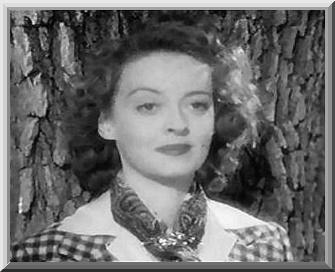
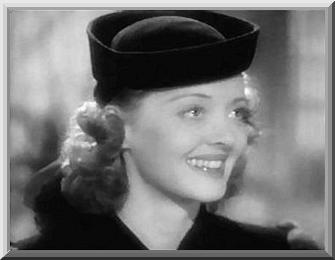
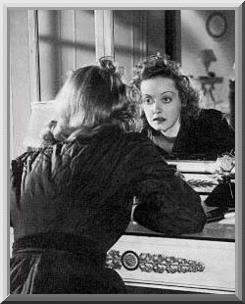
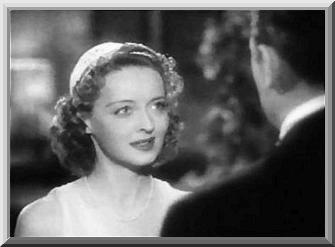
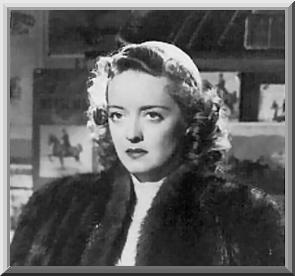
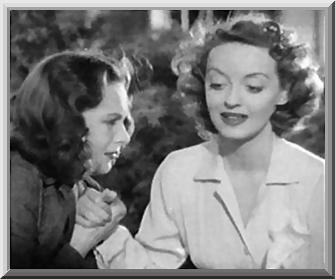
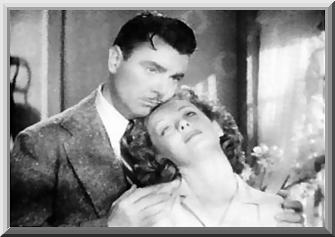
"Nothing can hurt us now. What we have can't be destroyed. That's our victory - our victory over the dark."
She delivers those parting words to her husband, secretly knowing that this will be their final goodbye. After he has left, she and Ann plant his favorite flower, hyacinths, and as Ann cries, Judy comforts her. Then she asks Ann to leave her, goes indoors to say goodbye to her dogs, and climbs the stairs one last time to lie down and triumphantly and victoriously face the end alone. She dismisses her housekeeper so that she can die
alone.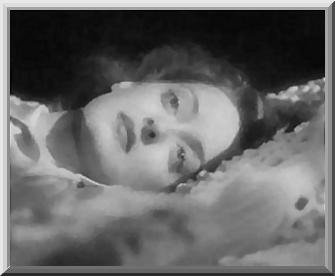

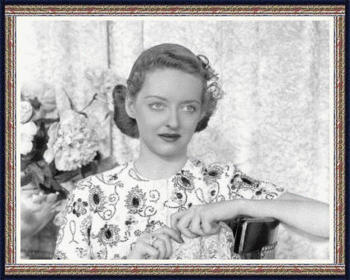
- Bette Davis - Judith Traherne
- George Brent - Dr. Frederick Steele
- Humphrey Bogart - Michael O'Leary
- Geraldine Fitzgerald - Ann King
- Ronald W. Reagan - Alec Hamin
- Henry Travers - Dr. Parsons



- Edmund Goulding - Director
- Bertram Bloch - Screenwriter
- Casey Robinson - Screenwriter
- Ernest Haller - Cinematographer
- Max Steiner - Composer (Music Score)
- William Holmes - Editor
- Robert M. Haas - Art Director
- David Lewis - Associate Producer
- Hal B. Wallis - Executive Producer
- Leo F. Forbstein - Musical Direction
- Elsie Janis - Songwriter
- Orry-Kelly - Costumes/Costume Designer
- Robert B. Lee - Sound/Sound Designer


- Best Actress (nom) - Bette Davis - Academy
- Best Picture (nom) - Academy
- Best Score (nom) - Max Steiner - Academy
- 10 Best Films (win) - Film Daily
- 10 Best Films (win) - National Board of Review of Motion Pictures
- 10 Best Films (win) - New-York Times









